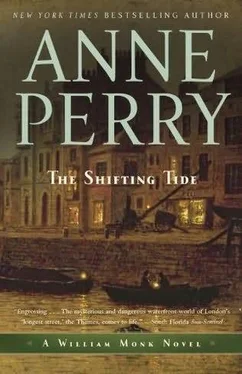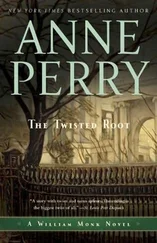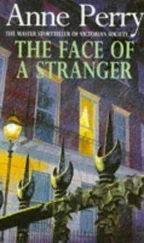Anne Perry - The Shifting Tide
Здесь есть возможность читать онлайн «Anne Perry - The Shifting Tide» весь текст электронной книги совершенно бесплатно (целиком полную версию без сокращений). В некоторых случаях можно слушать аудио, скачать через торрент в формате fb2 и присутствует краткое содержание. Жанр: Исторический детектив, на английском языке. Описание произведения, (предисловие) а так же отзывы посетителей доступны на портале библиотеки ЛибКат.
- Название:The Shifting Tide
- Автор:
- Жанр:
- Год:неизвестен
- ISBN:нет данных
- Рейтинг книги:5 / 5. Голосов: 1
-
Избранное:Добавить в избранное
- Отзывы:
-
Ваша оценка:
- 100
- 1
- 2
- 3
- 4
- 5
The Shifting Tide: краткое содержание, описание и аннотация
Предлагаем к чтению аннотацию, описание, краткое содержание или предисловие (зависит от того, что написал сам автор книги «The Shifting Tide»). Если вы не нашли необходимую информацию о книге — напишите в комментариях, мы постараемся отыскать её.
The Shifting Tide — читать онлайн бесплатно полную книгу (весь текст) целиком
Ниже представлен текст книги, разбитый по страницам. Система сохранения места последней прочитанной страницы, позволяет с удобством читать онлайн бесплатно книгу «The Shifting Tide», без необходимости каждый раз заново искать на чём Вы остановились. Поставьте закладку, и сможете в любой момент перейти на страницу, на которой закончили чтение.
Интервал:
Закладка:
He went downstairs and cleaned out the grate, clumsily. It was not a job he was accustomed to doing, and at the end he found himself with rather more cleaning up to do than he had expected. Then he laid a new fire and lit it. When it was drawing nicely, he damped it down so it would last. He filled the coal buckets to the top and wrote a note for Hester, saying simply that he loved her. At any other time he would have thought it ridiculous, but today it was the most natural thing to do. He only became self-conscious after he had propped it up on the table and had gone as far as the door, coat collar turned up. He smiled for a moment, then went out into the wind and sleet.
He had no idea of Hodge’s widow’s address; Louvain’s office was the obvious place to ask. However, the surgeon or the morgue attendant might know, and he would far rather ask them. He had too much other business to address with Louvain: the death of his sisters, the whereabouts of his missing crew, and his own black rage with him for deliberately sending Ruth Clark to Hester, knowing she had plague, and to use it to manipulate Monk. He dared not even think of that; the raw emotion it woke in him robbed him of reason, of any kind of judgment. He wanted to beat Louvain with his own hands until he was a bloody pulp and too helpless even to ask for mercy. And that blind rage frightened him; it woke old memories of another rage which had ended in murder, and only by the grace of God had he not been guilty.
So instead he set out to look for the attendant at the morgue. He was walking along the Embankment when he heard a scampering of feet. The next moment Scuff’s voice was demanding to know what was the matter with him.
“In’t yer talkin’ ter me no more?”
Monk stopped, taken aback at how pleased he was to see him. “I was thinking,” he excused himself.
“Think that ’ard an’ you’ll walk straight inter the river,” Scuff said disgustedly. “Wot yer lookin’ fer now?”
Monk smiled at him. “How about a hot pie? Then I need to find where the widow of the man from the ship lives, the one who was killed.”
“Wot fell down the ’ole an broke ’is ’ead?” Scuff asked. “ ’Odge?”
“Yes.”
“ ’Ow yer gonna do that?”
“Ask the man at the morgue, where she came to see the body.”
Scuff gave an exaggerated shudder. “ ’e won’t tell yer. In’t none o’ yer business. But we could ask Crow. ’E’d find out for yer!” Now he was eager.
“Do you think so?”
“Yeah! C’mon. We’ll get a pie, eh?” Scuff looked acutely hopeful.
Monk did as was expected of him, with pleasure. Three quarters of an hour later they were walking back along the street towards the river, the wind in their faces. Crow was concocting a vivid and rather unlikely story in order to obtain the necessary information from the morgue attendant. He did not once ask Monk why he wanted it. He seemed to consider it some kind of professional courtesy.
They reached the morgue, and Monk and Scuff remained outside while Crow went in. He emerged fifteen minutes later, black hair flying in the wind, and a smile of triumph showing brilliant teeth. “Got it!” he said, waving a piece of paper in his hand.
Monk thanked him, took the paper and read it, then put it in his pocket.
“Now what?” Crow asked with interest.
“Now I treat you to the best pie I can afford and a hot cup of tea, then I go about my business and leave you to go about yours,” Monk replied with a smile.
“You’re almighty pleased with yourself,” Crow said suspiciously.
“Only half,” Monk replied with sudden honesty. “I’ve still got the rest to do. Do you want that pie or not?”
He treated them handsomely, but refused to allow either of them to go with him. Scuff objected strongly, insisting that Monk was not safe on his own and unquestionably needed someone to advise him and watch his back. While Monk reluctantly agreed with him, nevertheless he still would not allow him to come. With a show of suffering fortitude, Scuff finally resigned himself to going with Crow instead, just this once.
It took Monk little more than an hour to find the right small brick house. It was in the middle of a long row of exactly similar houses built back to back near the docks in Rotherhithe. When he knocked on the door she opened it and he recognized her immediately, as much for her resemblance to Newbolt as for his memory of her at the morgue.
“Yeah?” she said suspiciously. He knew she was trying to remember where she had seen him before.
“Good morning, Mrs. Hodge,” he said respectfully. “I am hoping that you can help me-”
“Can’t ’elp no one,” she replied without hesitation, beginning to close the door.
“I should not be ungrateful for it.” He forced himself to smile at her. She was graceless and abrupt, but she must also be frightened, and whatever her relationship with her husband had been, she must still be raw from his loss and the implied disgrace that he had died of his own drunken carelessness. “I regret your loss, Mrs. Hodge,” he added quite genuinely. “It is a terrible thing when a husband or wife dies. I don’t think anyone else can comprehend it.”
“You lost someone?” she said with surprise.
“No, but I am fortunate. I very nearly did, and only late yesterday evening did I learn that she was all right.”
“Wot d’yer want?” she asked reluctantly. “I s’pose you’d better come in, but don’t get in my way! I in’t got all mornin’. Some of us ’as gotter work.” She pulled the door wider and turned to allow him to follow her into the small kitchen at the back. Seemingly it was the only warm room in the house. The black stove was burning and it gave off considerable heat-and a smell of soot and smoke that caught in his throat and made his eyes water. She seemed oblivious to it.
He looked around without having intended to. There was a stone sink, but no drain. That would be in the yard at the back, with the privy. Water would be collected from the nearest well or standing pump. There were wooden bins for flour or oats, several strings of onions hanging from the ceiling, and a sack of potatoes leaning against the wall, with two turnips and a large white cabbage beside it.
Two scuttles were nearly full of coal, and on the wall were hanging three very handsome copper pans.
She saw his glance. “I in’t sellin’ ’em,” she said tartly. “Wot is it yer want?”
“I was simply admiring your pans,” he told her. “It’s information I’m looking for.”
“I don’t grass!” It was a flat statement. “An’ before yer ask, they wasn’t stole. Me bruvver give ’em to me back in August. ’e bought ’em fair, at a shop up west. Could prove it!”
“I don’t doubt you, Mrs. Hodge,” he answered her. “Do you have several brothers?”
“Just the one. Why?”
“I suppose one like that is more than most people have,” he said, evading the answer. “The information I wanted has to do with the other men your husband served with on the Maude Idris . I wondered if you knew where any of them lived?”
“Lived?” she said in amazement. “ ’Ow the ’ell should I know? You think wi’ three kids I got time ter go around visitin’?”
“Only if they were close, a street or two away.”
“Maybe they are, but I dunno,” she replied. “Is that all?”
“Yes. Thank you. I’m sorry to have wasted your time.”
She frowned. “Why d’yer wanna know?”
He created the best lie he could think of. “Actually, it was the captain I wanted to find, but I’ll just have to keep looking. Thank you for your courtesy.”
She shrugged, not knowing how to reply.
He excused himself and went out into the street, his mind racing. He had the beginning of an idea, a wild, terrible possibility that explained everything.
Читать дальшеИнтервал:
Закладка:
Похожие книги на «The Shifting Tide»
Представляем Вашему вниманию похожие книги на «The Shifting Tide» списком для выбора. Мы отобрали схожую по названию и смыслу литературу в надежде предоставить читателям больше вариантов отыскать новые, интересные, ещё непрочитанные произведения.
Обсуждение, отзывы о книге «The Shifting Tide» и просто собственные мнения читателей. Оставьте ваши комментарии, напишите, что Вы думаете о произведении, его смысле или главных героях. Укажите что конкретно понравилось, а что нет, и почему Вы так считаете.












